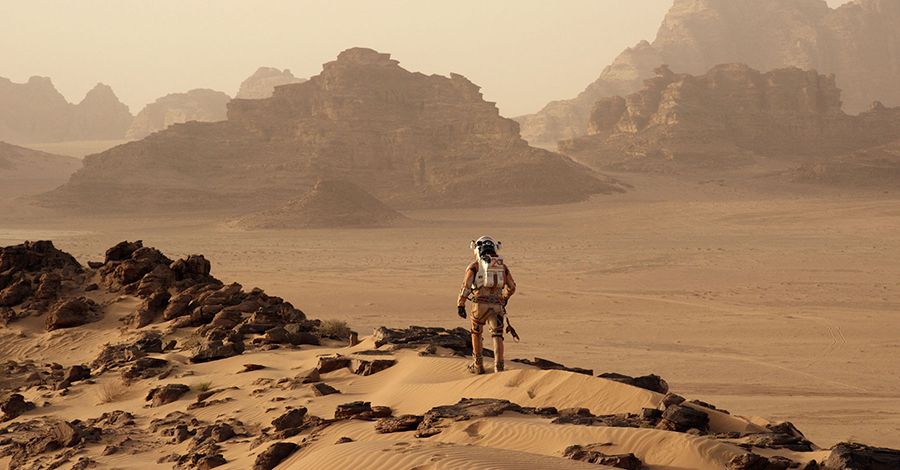If you've been waiting your whole life to see humans on Mars, you may not have to wait much longer. Well, relatively, anyway.
Some of NASA's top scientists are working on the plan to bring humans to Mars -- and then back to Earth -- regaled nearly 2,000 people at Comic-Con International in San Diego with descriptions of their work and how it's going to make science fiction a reality.
Jim Green, NASA's director of planetary science, consulted on the upcoming Ridley Scott "The Martian," which stars Matt Damon as an astronaut who struggles to stay alive on Mars after he's mistakenly left behind by his crew. Fittingly, Green explained how NASA's plans to get us to Mars span years of development, but at their core have a very human need: not to leave anyone behind.
"It is a plan to go [to Mars], but also to return," he said. "That's a critical element of the whole NASA philosophy."
Buoyed by President Barack Obama's pronouncement five years ago that we would be sending astronauts beyond the Moon, NASA has been developing a plan for achieving that dream by the mid-2030s. That may be decades away, but it's actually closer to today than the first manned space missions of the 1960s, said Todd May, head of NASA's Space Launch System Program.
May, who leads the team that's building the rockets for getting spaceships farther into space than ever before, described the newer, more powerful engines being constructed to carry space explorers. Those explorers include Victor Glover, another NASA representative on the panel who earned his astronaut wings only the day before.
"We're still learning things," Glover said. "We're learning that water droplets form differently in space. We're learning about long-duration spaceflight on the human body." But, he said, humans "are the weak link. We're already on Mars -- with robots."
For those who can't wait another 20 years, Andy Weir, who authored the New York Times bestselling book on which "The Martian" is based, was also on the panel. He said he was able to give his tale a sense of realism thanks to research he did on the Internet on NASA's plans.
"Ninety percent were Wikipedia pages," he said.
"The Martian" opens on Oct. 2.

